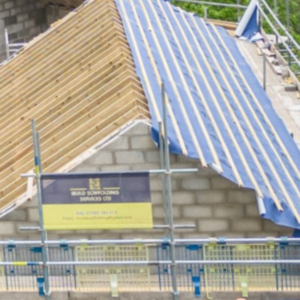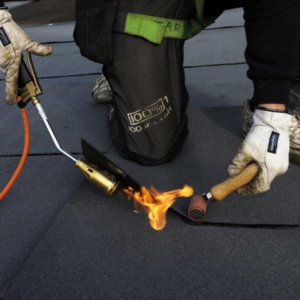Lee Brunsden, Head of Construction at Achilles says the introduction of the Common Assessment Standard gives roofing contractors the space to identify weaknesses and create more winning propositions.

In the wake of high-profile corporate failures, including Carillion and Forrest, contractors are under tremendous pressure to keep standards high—both within their own business and throughout their supply chain.
Roofing contractors are a crucial component of that supply chain and securing the most lucrative contracts now means jumping through more hoops.
Exceeding expected standards
A box-ticking approach will no longer suffice, with main contractors expecting much more from the supply chain, from accountability and remaining on top of rules and regulations, through to sustainability commitments.
Roofing companies, regardless of their size, must invest time in auditing their own supply chain, procedures and processes, ensuring they’re meeting and exceeding expected standards.
Understand what’s important to contractors
Sustainability is a particularly common stumbling block; Extinction Rebellion continues to steal headlines, with climate change protests becoming a regular occurrence in the UK’s major cities. As a result, contractors are keenly aware of the role they play in climate change and the need to protect their reputation.
Despite this, our research has revealed that sustainability is an area where suppliers continue to fall short—19 per cent still don’t audit their own supply chain, 70 per cent don’t measure their carbon footprint and 49 per cent have no ethical sourcing policy.
For many main contractors, environmental initiatives will be a major factor when hiring suppliers—Skanska is a good example, recently committing to publishing the emissions of its entire supply chain. When asked whether firms could lose the ability to work with the company if they fail to reduce their emissions, Skanska was clear that it would look for suppliers that share its ethos and commitment to reducing environmental harm.
It’s vital that the firms they hire reflect their own sustainability goals and commitments, whether that be recycling and reusing materials, using a more fuel-efficient fleet or investment in carbon offsetting projects.
Self-audit to close gaps and tackle weaknesses
To secure lucrative jobs and present themselves as a solid proposition for main contractors and other larger suppliers, it’s important that roofing companies invest time in understanding where there are weaknesses within their offer and seek to bolster those accordingly.
A good place to start is understanding where added value can be demonstrated, going above and beyond to show an innovative, forward-thinking approach that is aligned to that of the contractor or project.
View pre-qualification as a statement of intent
Any changes and improvements should be made in advance of Common Assessment Standard submissions, running through the questions carefully and noting where changes can be made quickly and inexpensively.
Where extensive changes are required, businesses should—as a bare minimum—demonstrate a commitment to making those necessary improvements in the future, if not before.
The days when Pre-Construction Qualification Questionnaires were viewed as a tick-box exercise are well and truly over. The newly introduced Common Assessment Standard makes it easier than ever for contractors to assess suppliers, and for suppliers to avoid the need to complete multiple versions—improving efficiency and saving on cost and time, while allowing us to gain a more accurate measure of industry-wide standards.
Invest the time in making sure your roofing company beats the competition—contractors’ concerns are your concerns; understand that and make sure it’s reflected in tender documents, proposals and backed up by a solid PQ questionnaire that reflects your business’ strengths.
For more insights, visit www.achilles.com



